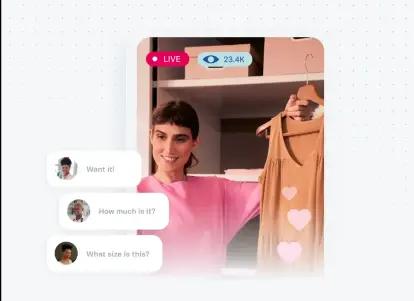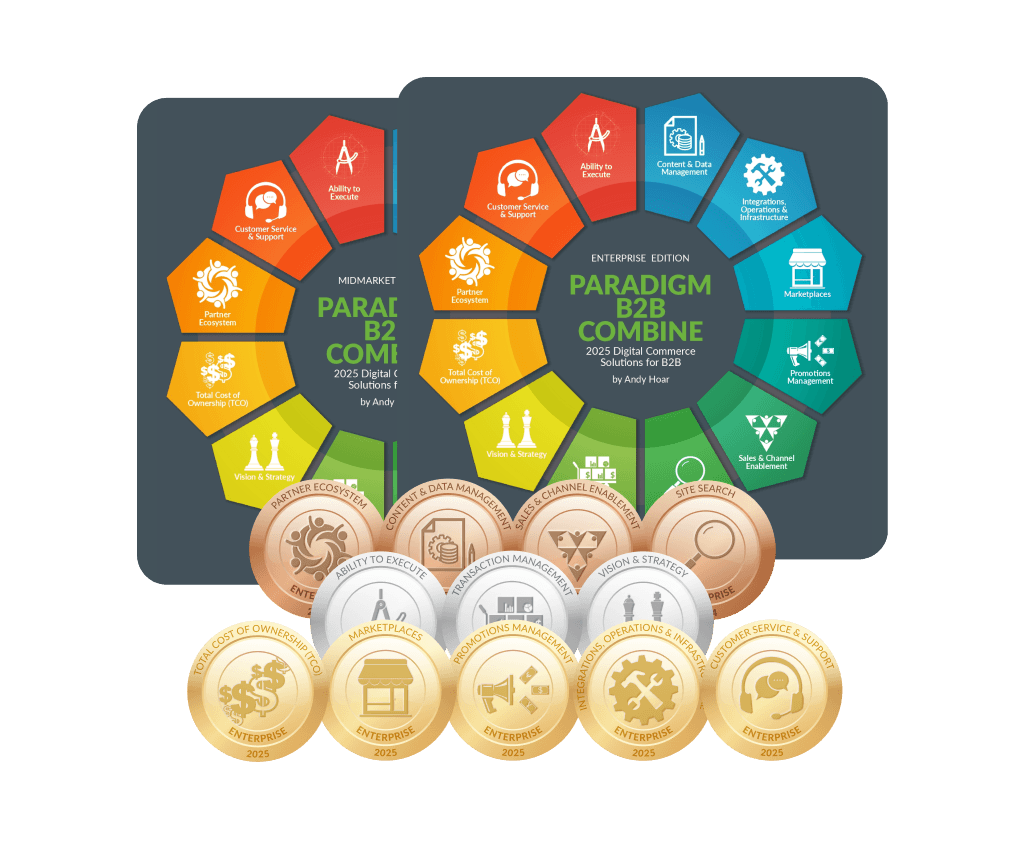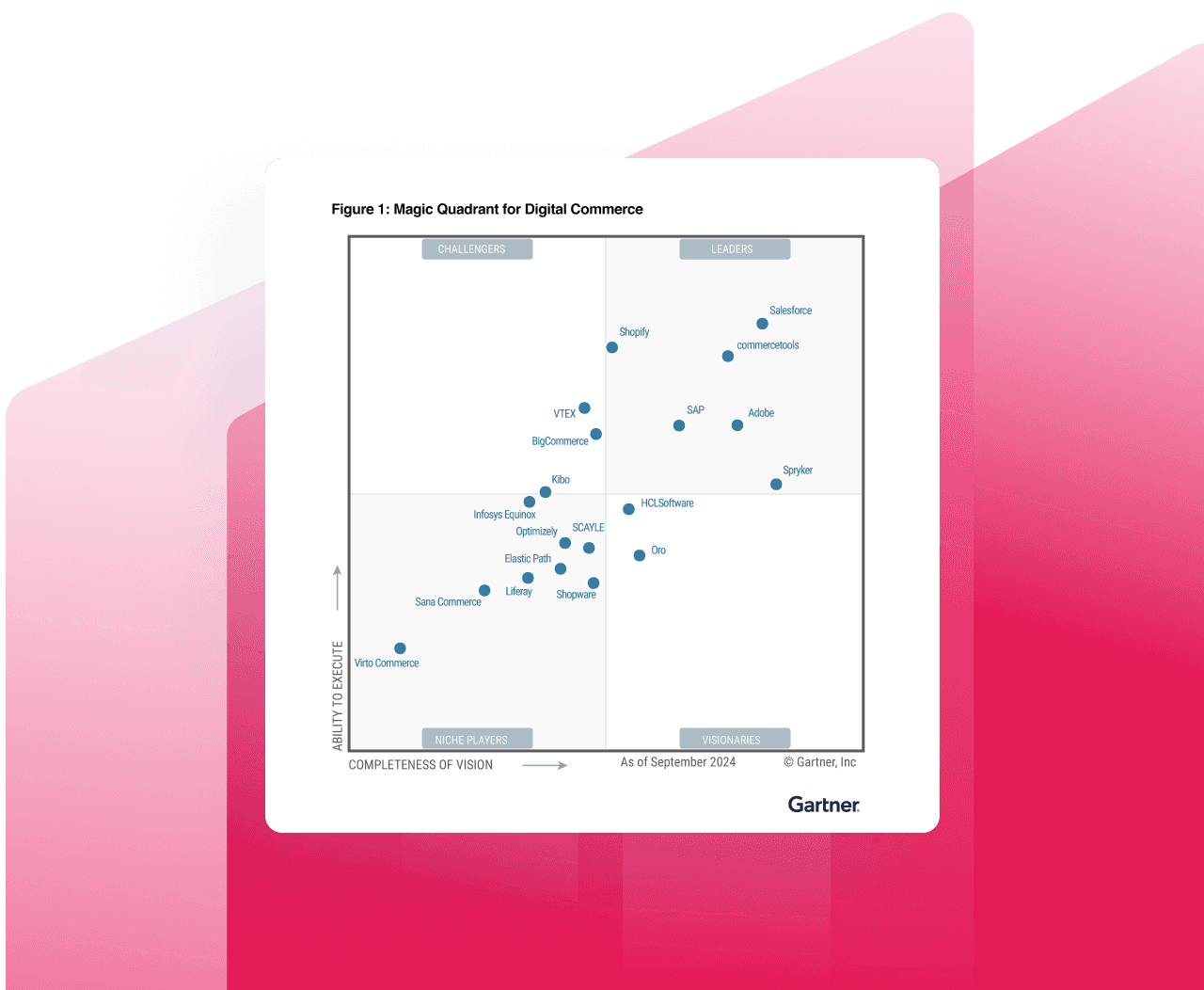The commerce suite of choice for bold CIOs and CEOs globally
Modernise your tech stack and reduce maintenance costs with VTEX’s composable, headless, and omnichannel ecommerce platform
Global brands trust VTEX’s headless and composable commerce solution
Paradigm B2B Combine
24 medals in 24 categories: VTEX sweeps the board in the Paradigm B2B Combine reports
Gartner Voice of the Customer
VTEX is the only vendor named a 'Customers' Choice' for the second year in a row
Ditch legacy systems and modernise your tech stack
Replace outdated platforms quickly with VTEX’s natively integrated, decoupled components. Access the latest digital commerce technology with fast time-to-market
Headless Storefront
API-Based Service
Native Marketplace
Omnichannel Retail

B2C and B2B Commerce
Run multiple business models on one unified commerce platform

Headless Storefront
For scalable, high-performance frontend experiences

Native Omnichannel
Deliver seamless commerce experiences with global stock visibility

Distributed OMS
Unify and optimise sales and fulfilment operations

Native Marketplace
Expand reach and revenue with built-in marketplace capabilities
“VTEX has surprised us by turning our bold vision into reality down to the finest details, sometimes going so far as to actually improve it. The expertise, top-notch technology and constant dedication have been invaluable to this project.”
Optimise IT investments with a headless and composable commerce architecture
With our modular commerce architecture and native development platform, you can build, replace, and test components, and keep only those that drives results
Native development platform
Cloud-based services
Elastic infrastructure
Lower TCO

Security and Infrastructure
Scale securely with reliable, high-performance ecommerce infrastructure

Extensions Hub
Connect your entire commerce ecosystem without complex custom code

VTEX IO App Platform
Build and deploy custom services and business tooling across your organisation

VTEX IO Frontend Platform
Deliver high-performance headless storefronts with state-of-the-art frontend resources
Pragmatic Composability
Find a smarter way to make digital commerce investments with VTEX's Pragmatic Composability approach
“Having a single comprehensive platform versus multiple platforms with separate implementations and integrations reduces the TCO.”
Launch new channels. Engage in new ways. Unlock growth.
Speed is a business differentiator. VTEX provides plug-and-play applications that enable new channels, streamlined operations, and new revenue streams

Live Shopping
Interactive commerce experiences that boost sales through smart shopping
Know more about
Recognised as a Leader in B2B commerce
VTEX earned 24 medals in the 24 categories of the 2025 Paradigm B2B Combine Enterprise and Midmarket reports
Leading global brands trust VTEX

44%
conversion rate in customised products
100
days to launch Colgate Pro and expand digital sales operations
VTEX solutions used

50%
of orders made through the bulk order feature
Lower TCO
with a centralised platform for online self-service, field sales and order management
VTEX solutions used

24/7
support to sellers
2,000
active customers in database
VTEX solutions used






